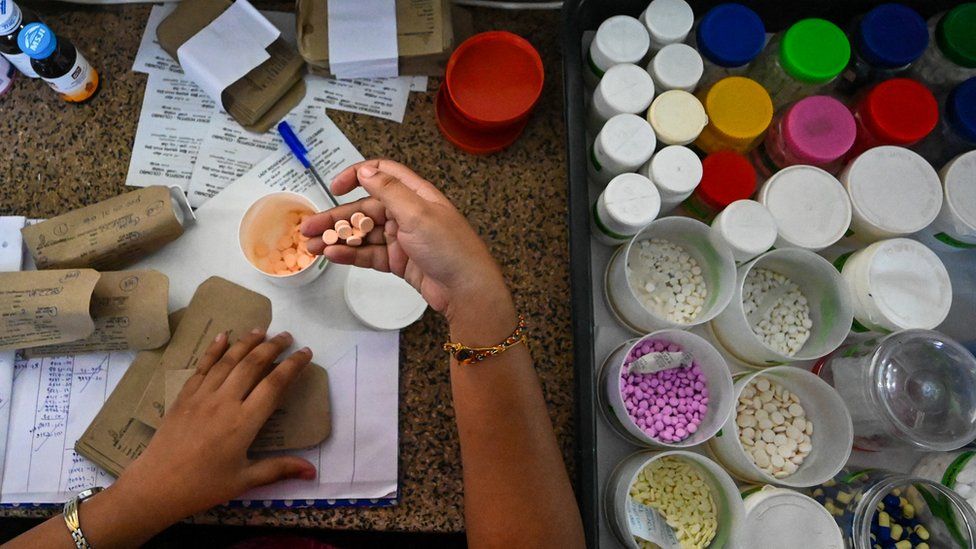Sri Lanka has sharply increased prices of commonly used medication, the second such rise in six weeks, as it struggles to deal with an economic crisis.
Antibiotics, certain painkillers and medication for heart conditions are among those hit by a 40% mark-up.
Sri Lankans have had to take short courses of medicines or look overseas for supplies.
The government says it has no other option than to increase the cost of pharmaceutical products.
It follows measures to help slow the depletion of foreign exchange reserves amid a crippling financial crisis.
Among the measures were restrictions or bans on the import of some essential goods, including foods and medicines.
“This is not something that government is doing willingly,” Nalaka Godahewa, Sri Lanka’s minister for mass media told the BBC.
He said the devaluation of the rupee and the fact that most medicine is imported by the private sector meant the government had no choice, otherwise there would be a serious shortage.
Health professionals are worried that the scarcity of medicine is forcing people to buy less than the prescribed limit.
“The situation is bad. Sometimes antibiotics are prescribed for five days. Now my customers are saying give me the antibiotics only for two or three days. How will it work?” Ruchira Hewawasam, who runs a pharmacy in Colombo, said.
Some fear that even for those willing and able to pay higher prices, some medication is in short supply.
Velupillai Wigneswaran who lives in the central Ratnapura district, has been trying to find prescription tablets for his sister, who suffers from a serious neurological disorder, for the past year.
“We tried several pharmacies but the medicines are not available. Doctors have advised us not to take different medicine. We are trying to get the tablets from India through our friends,” he said.

Without the medicine, Mr Wigneswaran said his sister was suffering and he was not sure what will happen to her health.
“The crisis we are facing in the pharmaceutical sector is unprecedented. The sharp increase in medicine prices will take its toll,” Azam Jaward, Vice President of Sri Lanka Chamber of Pharmaceutical Industry told the BBC.
Antibiotics for paediatrics, life-saving anti-biotics, steroids are among the medicines are difficult to obtain.
This comes against the backdrop of explosive public anger at the rising prices of other essential items such as cooking gas, milk powder and fuel.
Thousands of people have been protesting against the worsening shortage and calling for the government to resign.
India has offered to supply medicines as part of a loan programme. But that process has been slowed down due to bureaucratic hurdles.
The government has approached international agencies like the World Bank to help buy essential items like medicines.
“They have already told us something like $600 million will be coming forth and when that comes we should be able to bring some of these prices down,” Mr Godahewa said.
BBC
